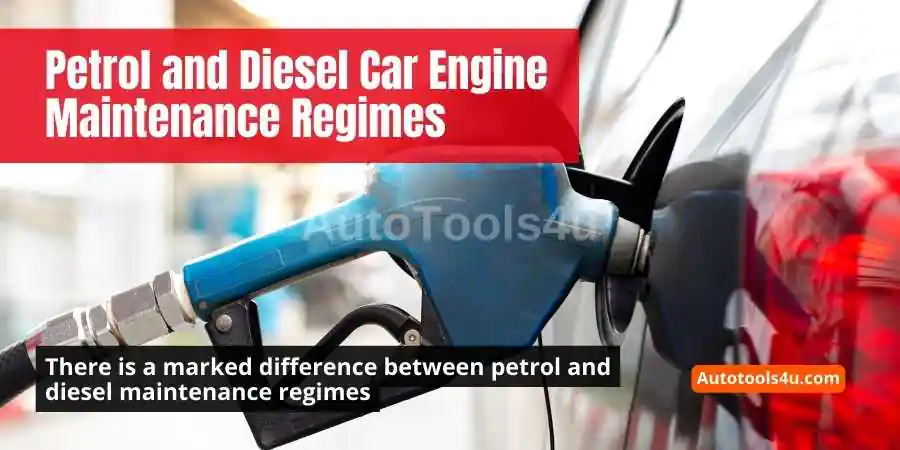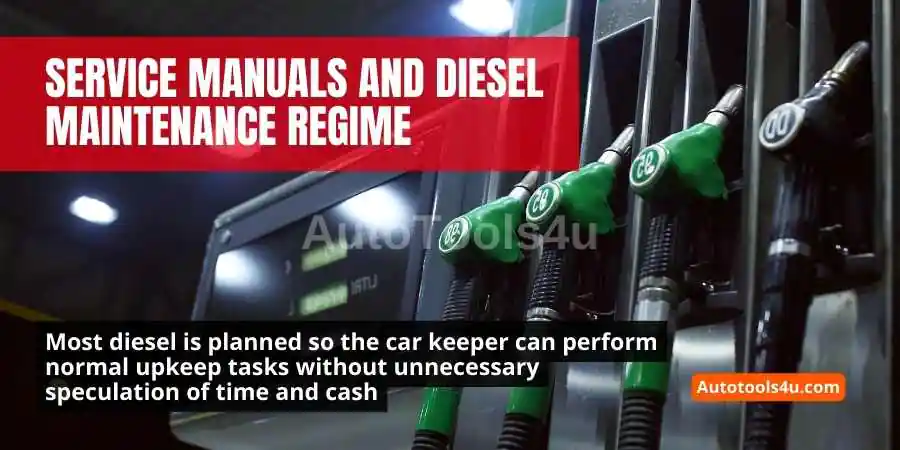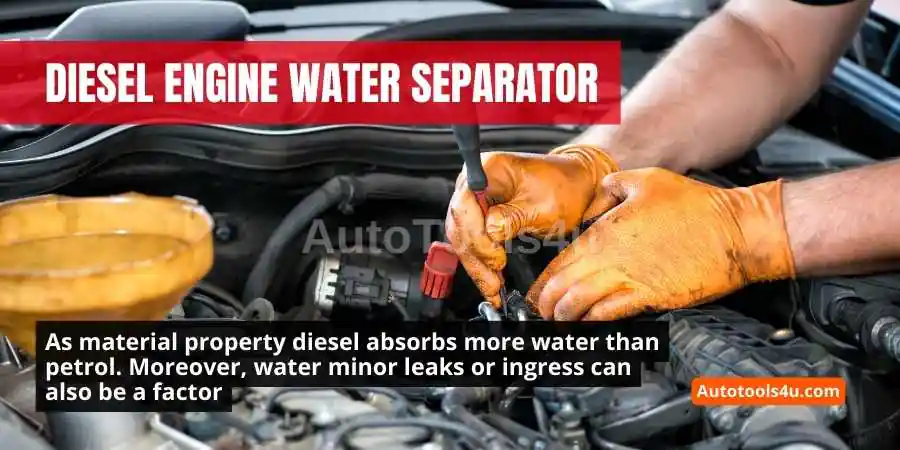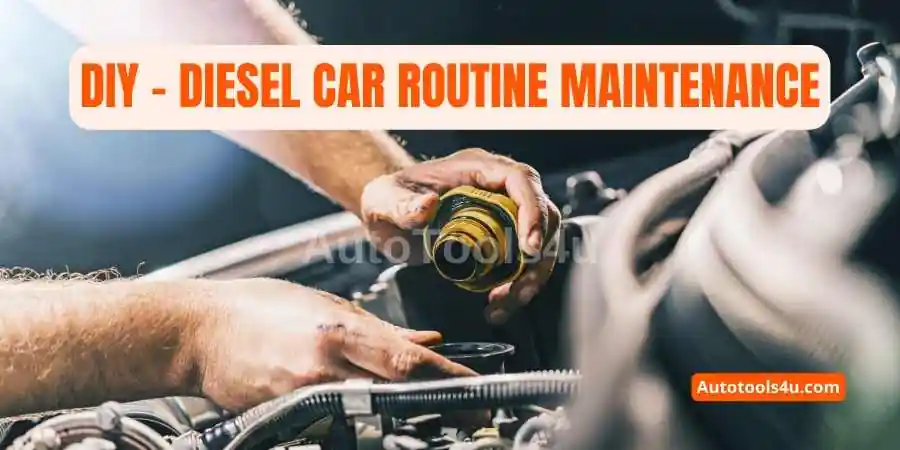Keeping up with your vehicle maintenance is a routine that we all have unfortunately have to get used to, especially if you have a diesel car that makes it even more important and higher in the priority list of weekly chores.
The diesel engine has a much higher average life than the patrol counterpart although it comes at a price, your time, and some TLC.
Diesel engines use high-pressure jet atomizers under temperature to ignite the fuel hence the fact that diesel engines are free of ignition issues such as spark plugs etc, they do require standard minimal expense upkeep, for the most part as regular engine oil and associated filter changes. The urea system that diminishes nitrogen oxide fumes likewise need topping off, which is generally done as a feature of routinely booked services.
Petrol and Diesel Car Engine Maintenance Regimes

There is a marked difference between petrol and diesel maintenance regimes. For example, if you own a petrol car and are careless to change its oil at the right time, the worst-case scenario is you may end up with an engine which is worst for wear and tear and matured more than it should be. Alternatively, in the case of diesel engines, you may end up with an engine that has seized property which renders your car total improper in any possible human way. Taking the example further, an example of fuel filter change. Now we all know fuel filters can affect vehicle performance and consumption as such. However, petrol engines are far more tolerant of fuel debris as opposed to diesel, the reason being the sensitivity of fuel injectors and their tendency to get clogged. As discussed above, fuel injectors play a very important role in diesel engines, almost a critical role. Any debris in injectors and you are looking at a very hefty repair bill.
Diesel Car Fuel Choice
One more thing here is to mention is the type of fuel to use. We have found that using higher quality diesel fuel is a much far better choice by a long margin as it keeps your engine and injectors happy as well as clean fuel lines will help reduce mileage and exhaust emissions.
Diesel Engine fuel injectors clean-up
When it comes to it and hopefully not, you shouldn’t attempt to clean or change a diesel’s fuel injectors yourself, as has been suggested above, if you keep up with your vehicle upkeep, they can last 100s of thousands of miles. All things considered, HGV drivers have consistently favored diesel since they observe them be extreme, solid, and modest to run and keep up with.
Service manuals and diesel maintenance regime

Most diesel is planned so the car keeper can perform normal upkeep tasks without unnecessary speculation of time and cash.
It’s possible that your vehicle manual doesn’t direct you in the right maintenance regime or worst you have lost the thing somewhere. Find the local dealer for your vehicle and try to look for parts division and request to see a duplicate of the help manual for your vehicle. In case you do not fancy a hard copy, you may be able to find a soft copy on the internet either free or with some nominal amount. Trust us, it’s worth it.
A brief glance at the relevant segments should reveal to you whether you can do the work yourself. In case you don’t know, request some assistance from the dealership business to show you where the oil, fuel and air filters are found and what’s entailed with changing or adjusting them. you will be surprised that most dealerships are pretty good at this stuff.
Let’s not forget YouTube, the master of the masters. Finding a good click on YouTube is worth a thousand pages of manual. Don’t forget to bookmark or favorite the ones that you like in case you want to come back to them later.
Diesel engine water separator

As material property diesel absorbs more water than petrol. Moreover, water minor leaks or ingress can also be a factor. That’s one reason that water in diesel fuel tanks can be a common presence. As it is lighter than fuel it does collect in the bottom. It is also possible to physically separate the water from the tank by draining the tank. However, we hope it doesn’t come to that, as most diesel vehicles include a contraption considered a water separator that gathers water from the fuel. It’s normally situated on or close to the fuel lines/filter. On the off chance that your vehicle doesn’t have one, you can have one fitted if you wish as the price of the part shouldn’t be very high.
Albeit some of the water separators are self-cleaning, most should be physically handled: You simply turn a little channel valve and drip the collected water away from the separator.
As suggested above, fuel quality can be a big issue for diesel engines. Apart from the fact that fuel debris can choke the lines and injectors, there is additional danger of persistent water content in fuel. If you notice that the water separator is getting filled quickly then consider changing your diesel forecourt.
Forecourts are required to have very maintained tanks that are supposed to be water-resistant however not all fuel stations comply with regulations nor the maintainer’s guide.
Epilogue
Autoinsurancezx is a new shining star on the front of auto care, information, and development that is updated with the latest industry trends and ideas. we have a collection of articles on varied topics, anything from car wash tips to maintaining your brand new Tesla. keep us bookmarked in your devices and check for new articles and information which would help you in routine car maintenance as well as following up on latest industry trends.
